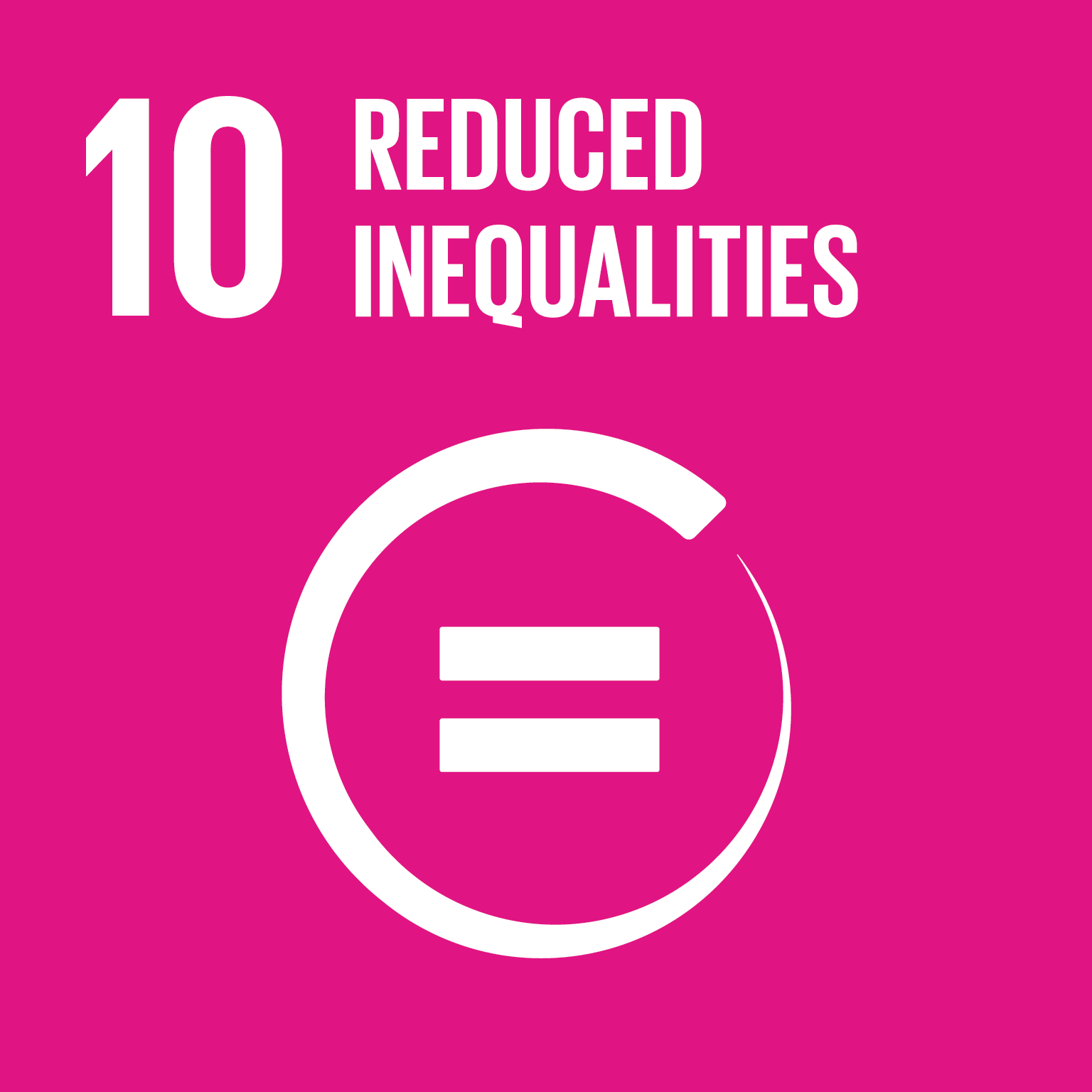


In their neighborhoods and across the world, efforts of Geneseo alumni transform individuals, communities and generations. We recently shared the stories in the Scene magazine of several alumni who demonstrate the power we each have to make a difference, in large or small ways. We will highlight these stories in the coming weeks. Know someone who is having an impact? Tell us at scene@geneseo.edu. Our alumni also make a difference by addressing the Sustainable Development Goals outlined by the United Nations (see icons at right).
The Felices Manos school that Noreen Corey ’83 started for young children is a unique place. It is the only school for deaf kids on the Equatorial Guinea mainland.
There was no education for them at all in this Central African country before she unpacked her suitcase and rented a rented house in 2006 and got teaching in her living room.
“A parent told me,” says Noreen, “that there was no more standing near the door crying for that child as they watch their siblings go off to school. That first day of school, they became someone special and someone worth educating. That was pretty powerful. It was a complete life-changer for them.
Noreen founded the school on sheer will, very few resources and a passion to help deaf children reach their potential. It’s about how she has to run it still, 10 years later.
At Manos Felices, kids from preschool to sixth grade attend class, learn sign language, bused to the small school in Bata, in the outskirts of the city of Bata. Construction was funded by First Lady of the Nation Constancia Mangue de Obiang.
“My original vision of my life when I was in my twenties was to start a school for the deaf in a needy area,” says Noreen.
Ideally, she saw that happening in Africa.
 She always knew she would spend her life educating the deaf and advocating for the deaf. She also knew she wasn’t going to lead a conventional life. After earning her degree in special education and education at Geneseo, she earned a master’s degree in deaf education at Gallaudet University for the deaf and taught at Rochester School for the Deaf before working in deafness in Ecuador in the Peace Corps. She also worked in deaf education in Honduras and taught and directed a school in Costa Rica.
She always knew she would spend her life educating the deaf and advocating for the deaf. She also knew she wasn’t going to lead a conventional life. After earning her degree in special education and education at Geneseo, she earned a master’s degree in deaf education at Gallaudet University for the deaf and taught at Rochester School for the Deaf before working in deafness in Ecuador in the Peace Corps. She also worked in deaf education in Honduras and taught and directed a school in Costa Rica.
In 2005, she went on a trip to Equatorial Guinea to see what education resources there were for the deaf on the mainland. “There was absolutely nothing,” she says.
She realized this is was the place to open her own school, serving preschool through grade 6.
Before she left that year, Noreen started tutoring six children on that trip. She remembers telling them she’d be back: “They didn’t believe me.”
“Even though I was 40 and I thought I’d be doing this sooner,” she says, “this is where (Africa) I knew it would be. When I look back at it, my overseas experience starting with the Peace Corps was my prep time. I needed to do all that before I started my own school. I never could have without it – this country is so tough.”
Equatorial Guinea is the only African country with Spanish as an official language. There are few educational resources, a high infant mortality death rate and up to half of residents don’t have access to clean drinking water.
The school runs on donations from supporters, The Knox Family Fund, and assistance from Hess Corporation, which has oil operations there. She says Hess has provided free shipping for books and other resources, furniture and a multitude of necessities over the years.
Noreen now dreams she can find a financially secure way for it to continue its mission far after she’s stepped aside.
She is inspired by the everyday accomplishments: Fabiola passing the spelling test. Leticia learning to ride a bike. Vicente and Rebeca fingerspelling new words.
Noreen hopes her school can be a model for expanded deaf education in Equatorial Guinea, and ultimately bring more value placed on educating the deaf and all special needs kids.
She and her teachers use basic American Sign Language, have adopted societal gestures from the area and have invented signs to create a language that fits a Spanish-speaking African country and their African culture.
“I hope my school can become the standard,” she says. “I want everyone to meet their potential, have hope and have opportunities in the future.”
Find out more about Manos Felices school via www.jedministries.com, which includes content about Noreen’s school.
— By Kris Dreessen